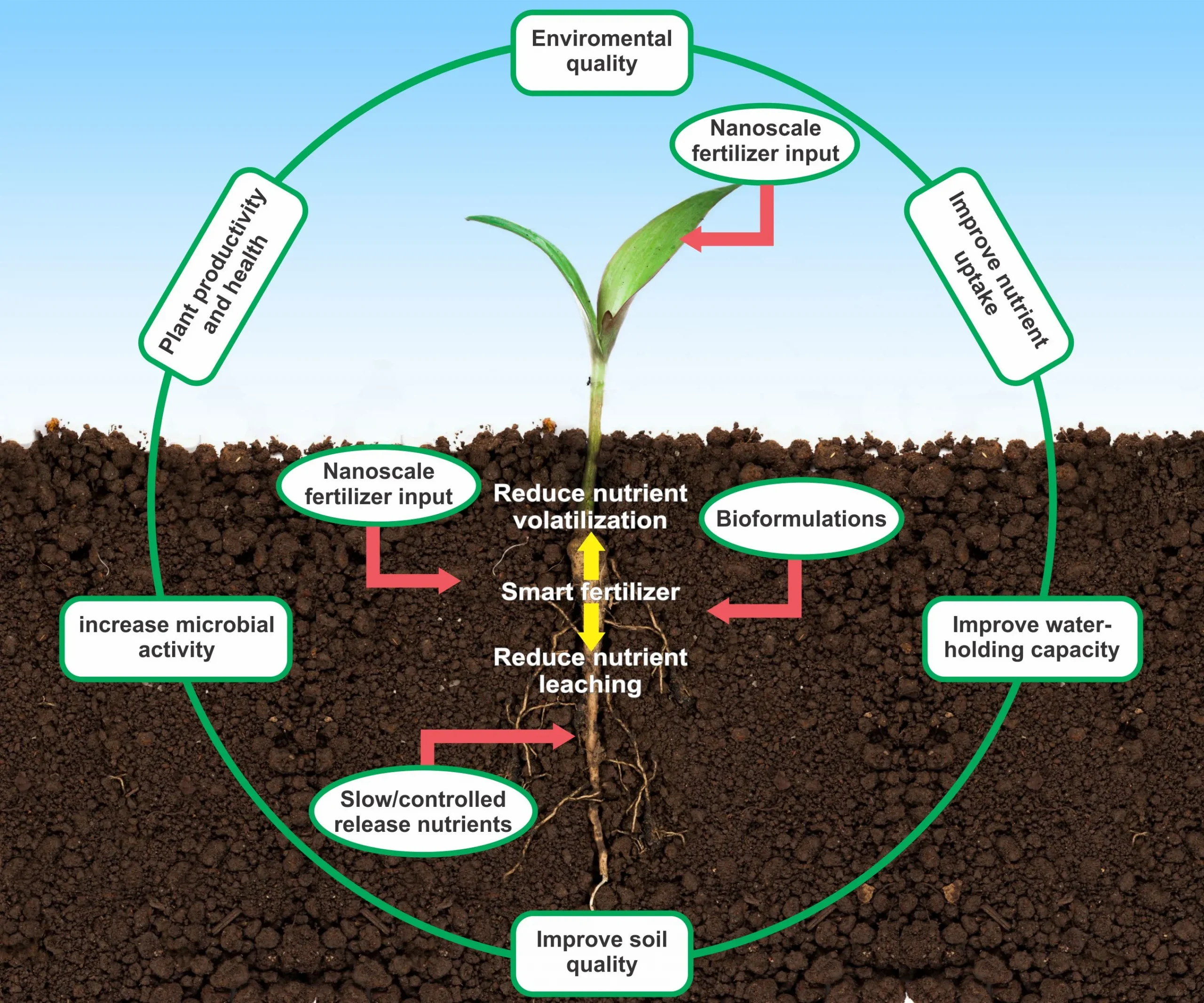
resently agriculture all across the world is facing a wide range of challenges; the important challenges are crop yield stagnation, decrease in arable land due to land degradation and urbanization, low nutrient use efficiency, deficiencies of more than one nutrients in soil, declining soil organic matter, water availability etc. Under these challenges, it would be difficult to produce enough food to feed the ever increasing populations, which is expected to cross 9 billion by 2050. Nanoscience and Nanotechnology research in agriculture and horticulture are still at an elementary stage but developing rapidly. Conventional bulk fertilizer or traditional fertilizers are not only expensive for the producer, but may be harmful to humans and the environment. This has led to the search for environmentally friendly fertilizers or smart fertilizer, mainly those with high nutrient-use efficiency, and nanotechnology is rising as a promising alternative. In agriculture, nanotechnology products are being tested for various applications, such as nanoscale sensors for sensing nutrients, nanoscale pesticides, smart and target delivery of nutrients, agronomic fortifications, water purification and nutrient recovery. However, the benefits of nano nutrients are unquestionably opening latest approaches towards precision and sustainable agriculture; their limitations should also be wisely considered before commercial implementation. In particular, the extensive release of nanomaterials into the environment and the food chain may pose a risk to environment and human health. There are naturally occurring nanoparticles that have been proposed for agricultural use, such as zeolite minerals. However, engineered nanomaterials can now be synthesized with a range of desired chemical and physical properties to meet various applications.
